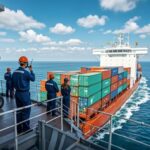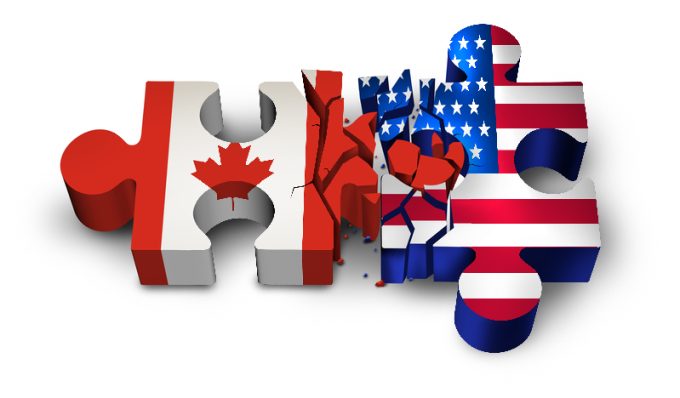The United States and China agreed on Thursday to halt tit-for-tat duties on each other’s ships that have become a major irritant in the broader trade war between the world’s two largest economies and driving up shipping costs. Reuters reported the agreement.
Read also: Oil prices rise after the framework agreement on trade between the United States and China
The move provides a 12-month reprieve on an estimated $3.2 billion a year in fees for large Chinese-made ships sailing to US ports, and was among the trade deals reached in South Korea by US President Donald Trump and Chinese President Xi Jinping.
Earlier this year, the Trump administration announced plans to impose tariffs on ships linked to China to loosen the country’s grip on the global maritime industry and boost American shipbuilding. The so-called Section 301 sanctions followed a US investigation that found that China’s dominance of the global maritime, logistics and shipbuilding sectors was driven by unfair practices.
U.S. Treasury Secretary Scott Besent told Fox Business on Thursday that the Section 301 measure has been suspended.
The US Trade Representative’s office did not immediately comment on whether the temporary pause includes other US sanctions, including those on non-US carriers manufacturing outside China.
The Section 301 sanctions also included 100% tariffs on port cranes made in China. The Chinese Ministry of Commerce said in a statement that the suspension applies to Article 301 sanctions “related to China’s maritime, logistics, and shipbuilding sectors.” China will also suspend countermeasures and duties on ships linked to the United States, it added.
Maritime experts have warned that the tariffs have cost ship operators, including Chinese-owned COSCO and US-based Matson, millions of dollars and disrupted ship schedules, leading to higher shipping costs that will eventually reach consumers.
Singapore-based High-Trend International Group said in a statement that the suspension provided immediate material benefits to the company. “The suspension removes the long-term cost and policy burden that has impacted HTCOs’ maritime logistics and carbon neutral initiatives,” High-Trend said. “This development is expected to significantly reduce cross-border shipping costs, improve cash flow stability, and enhance investor confidence in HTCO’s growth strategy.”
While naval executives welcomed the suspension of sanctions, they expressed frustration at the continuing uncertainty.
“I sincerely hope that this agreement will have some continuity, something that has been sorely lacking so far, which will allow the shipping industry to continue with its primary goal – facilitating global trade,” Simon Heaney, senior director of container research at marine research consultancy Drury, said on LinkedIn.
Source: Market intelligence platform IndexBox










